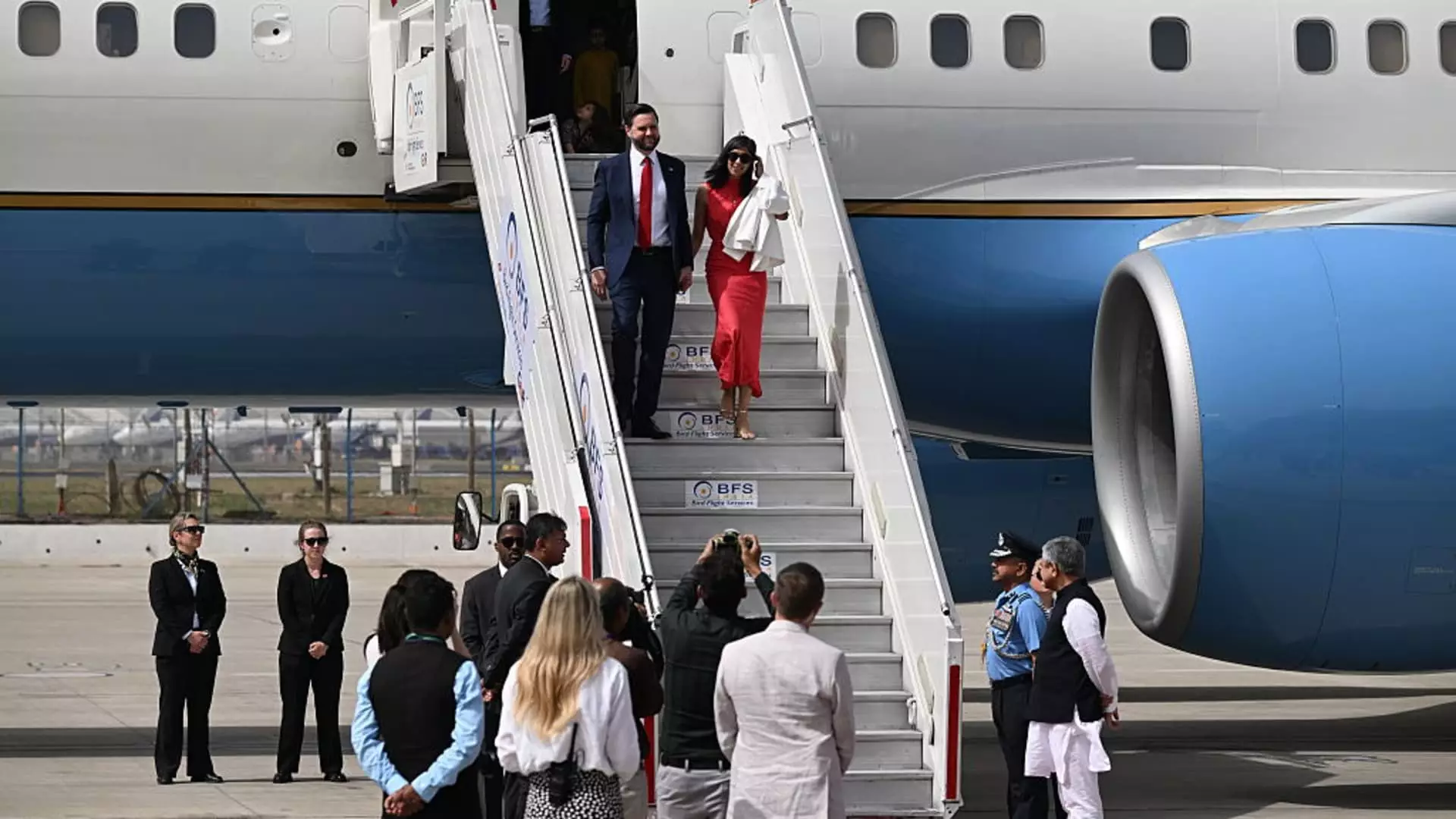The recent visit of U.S. Vice President JD Vance to India is a multifaceted engagement that encapsulates the broader dynamics of international relations. His four-day tour is not merely a diplomatic formality but serves as a potential signal of shifting allegiances in the geopolitical arena, especially amidst escalating tensions with China. As Vance meets with Indian Prime Minister Narendra Modi, there’s an undercurrent of desperation to strike a trade deal that could ease the U.S. administration’s tariffs—characterized rather unflatteringly by President Trump as an “abusive” practice by India.
A trade agreement, or even a framework, would undoubtedly bolster U.S.-India relations, yet we must question the sincerity of such efforts. Are these merely temporary patches on a more profound tension between the two nations? The notion of fairness in trade is commendable, but the real strength of diplomacy lies in its honesty and transparency. In this case, the motivations behind such engagements may not necessarily align with mutual interests but rather are influenced by the precarious positioning of both countries on the world stage.
Personal Ties and Political Motives
The visit is underscored by a personal narrative; Vance is accompanied by his family, and his connection to India as the son of Indian immigrants adds an emotional layer to his trip. However, we must remain critical of the idea that personal ties alone can ease the tensions wrought by trade inequities. While his relationship with India may offer insights into cultural perspectives, it does not absolve him from the obligations of political leadership—where economic interests often overshadow familial histories.
The choice of itinerary—visiting iconic sites like the Taj Mahal and attending a wedding—suggests an effort to soften political discussions with a veneer of warmth. However, we cannot overlook the stark contrast between Vance’s personal engagements and the pressing political agenda at hand. This marriage of the personal and political raises uncomfortable questions about the authenticity of diplomatic gestures: can genuine connections form when commercial interests are paramount?
Defense Partnerships: A Double-Edged Sword
In the arena of defense, discussions are set to be pivotal, particularly in light of mounting tensions in the Asia-Pacific region. The prospect of India purchasing advanced weaponry from the U.S., such as Javelin anti-tank missiles, points to a realignment of military strategy that may serve both nations in counterbalancing Chinese influence. However, the reliance on arms deals as a foundation for partnership is inherently problematic. It risks creating a volatile relationship, where military might overshadows cooperative diplomacy.
The sharp focus on defense partnerships raises red flags about the motivations behind this alliance. Are we witnessing a collaborative approach grounded in mutual security, or is it simply a transactional relationship built on weapons sales? The stakes are incredibly high; India must tread carefully to ensure that it does not become entrenched in U.S. military objectives at the expense of its own sovereignty.
Rethinking International Alliances
The backdrop of Vance’s visit is a critical juncture for U.S.-India relations, with the looming actuality of a trade deal shaped by bipartisan pressures. A perceived necessity to align against common adversaries, like China, can lead to uncritical acceptance of partnership terms that may not benefit India in the long run. It is imperative that India retains its agency amidst external pressures; the risk of becoming overly dependent on the U.S. could undermine its own objectives on the global stage.
Furthermore, as the Quad alliance experiences shifts, it would be prudent for India to evaluate the implications of its commitments critically. Building an equitable partnership must transcend defense and trade deals; it should prioritize shared values of democracy and human rights, which are often sidelined in favor of economic expediency.
The complexities of this visit prompt a re-evaluation of what bilateral engagements ought to look like in an increasingly multipolar world. Are we building alliances, or merely forging transactional relationships that will ultimately fail the test of time? These discussions need to reflect the reality of a world that demands cooperation, not just political posturing.



Leave a Reply